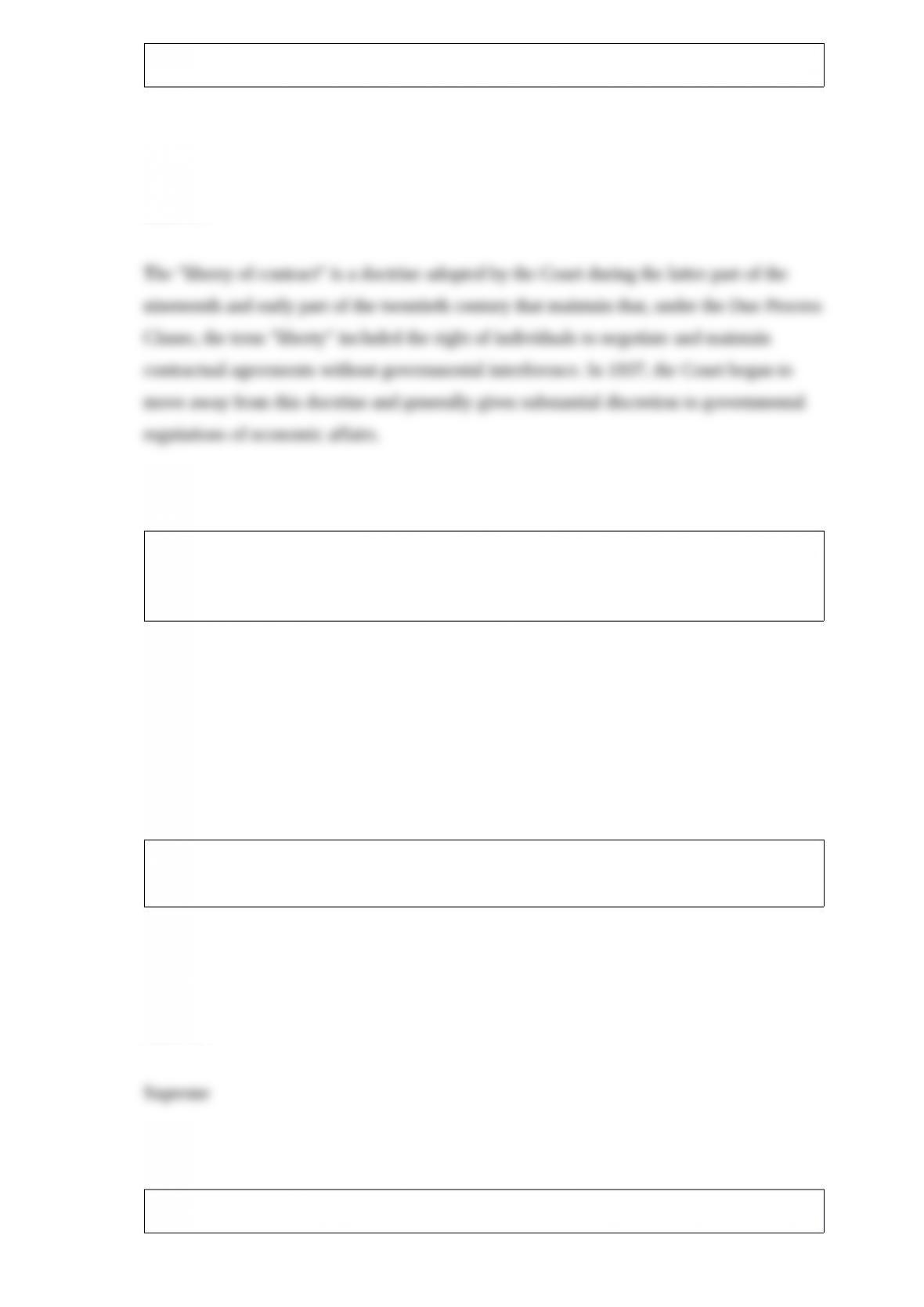Answer:
Which of the following best describes the Framers' intentions concerning the
relationship between state and federal courts?
A) Federal courts were to be the primary courts under the Constitution, hearing all
important cases, i.e., felony criminal proceedings.
B) State courts were to be the primary courts with the federal courts possessing
jurisdiction over a select group of cases.
C) The Constitution created a system of federal courts to hear all cases and abolished
the state court systems.
D) The Constitution did not create any federal courts and specifically acknowledged the
jurisdiction of state courts over all cases, federal and state.
Answer:
Under the Fourth Amendment, which of the following is NOT an exception to the
warrant requirement for searches and seizures?
A) Serious offense
B) Plain feel
C) Plain view
D) Exigent circumstances























































